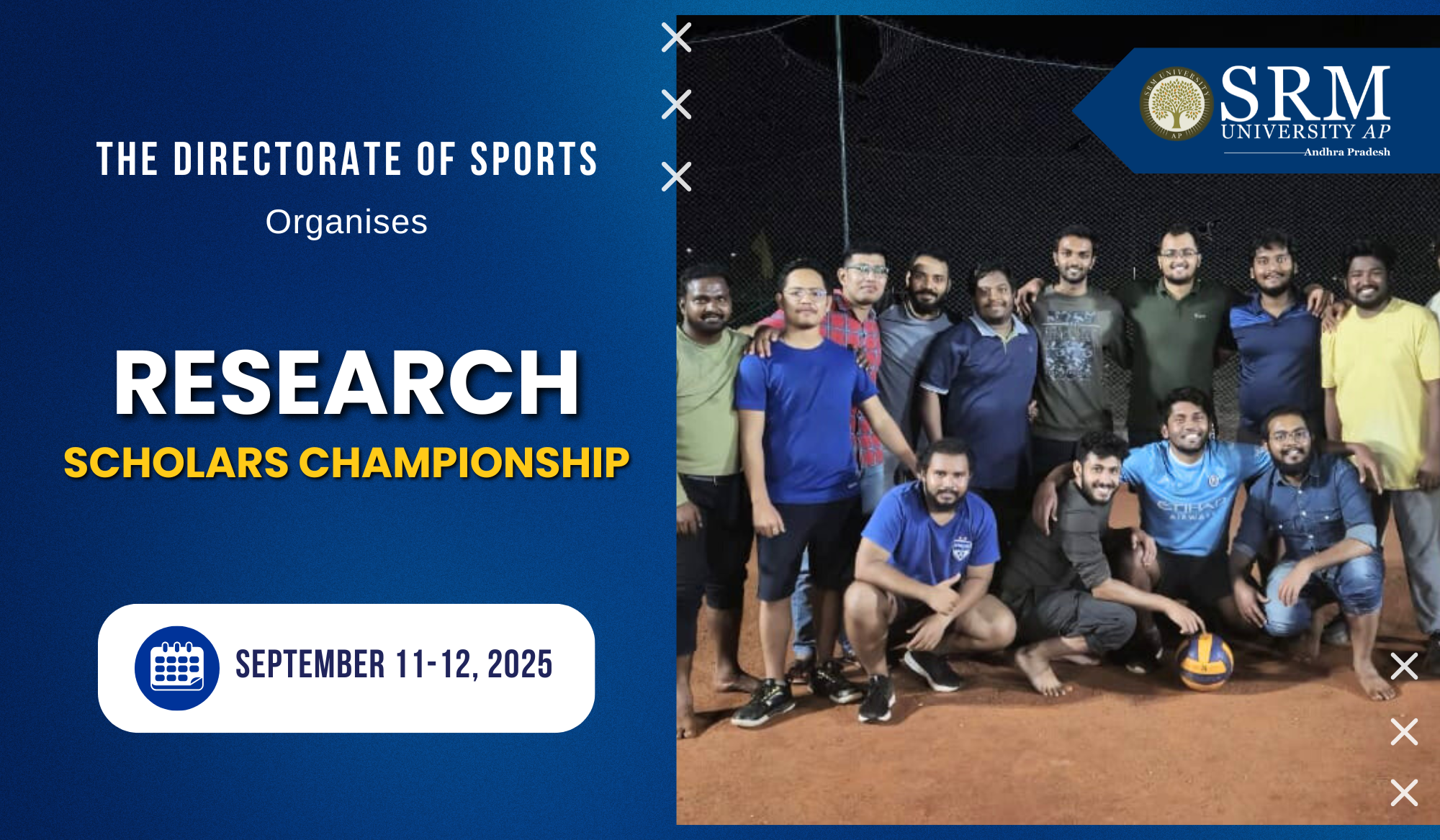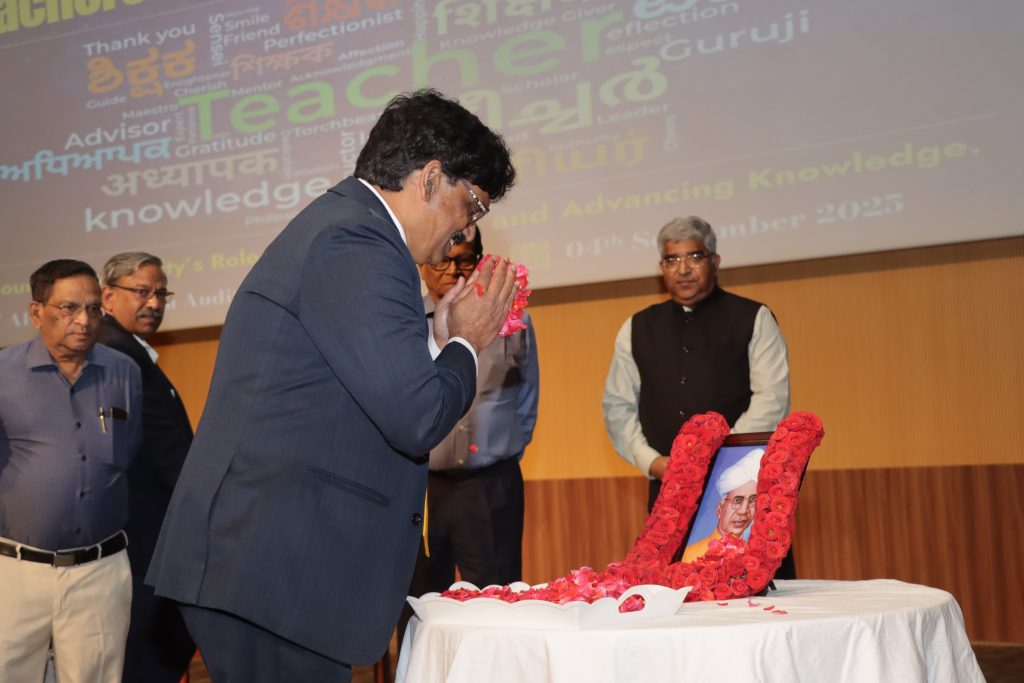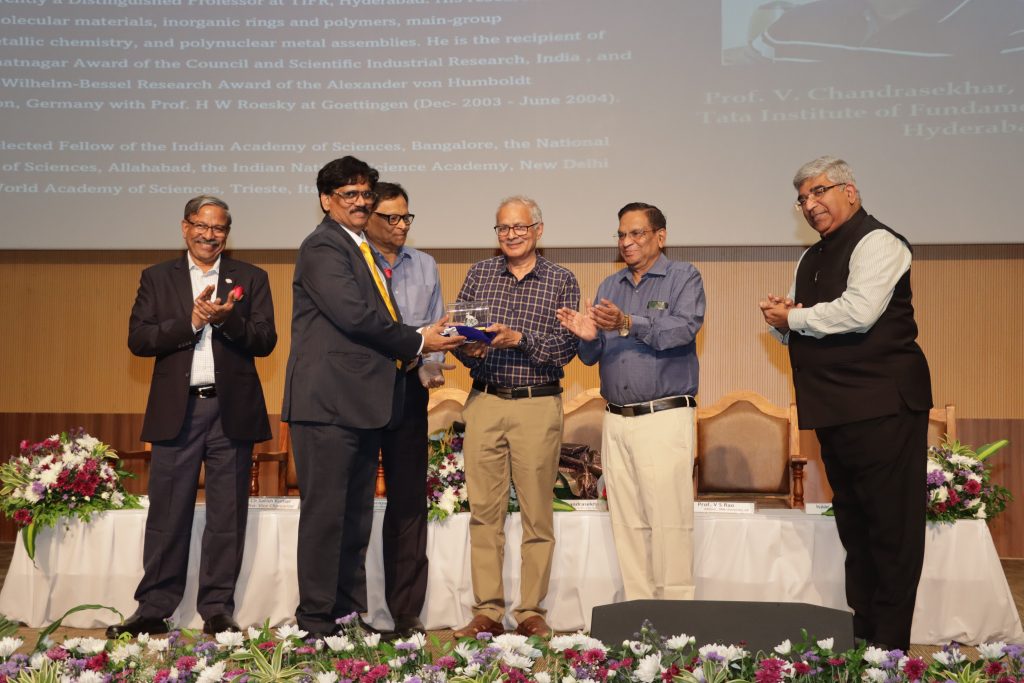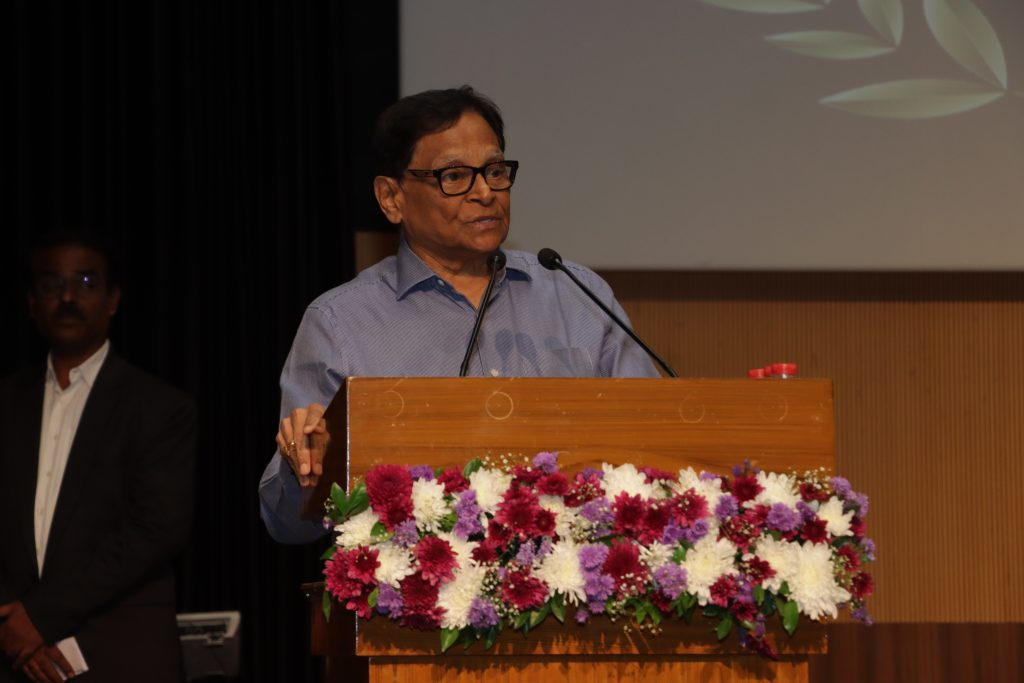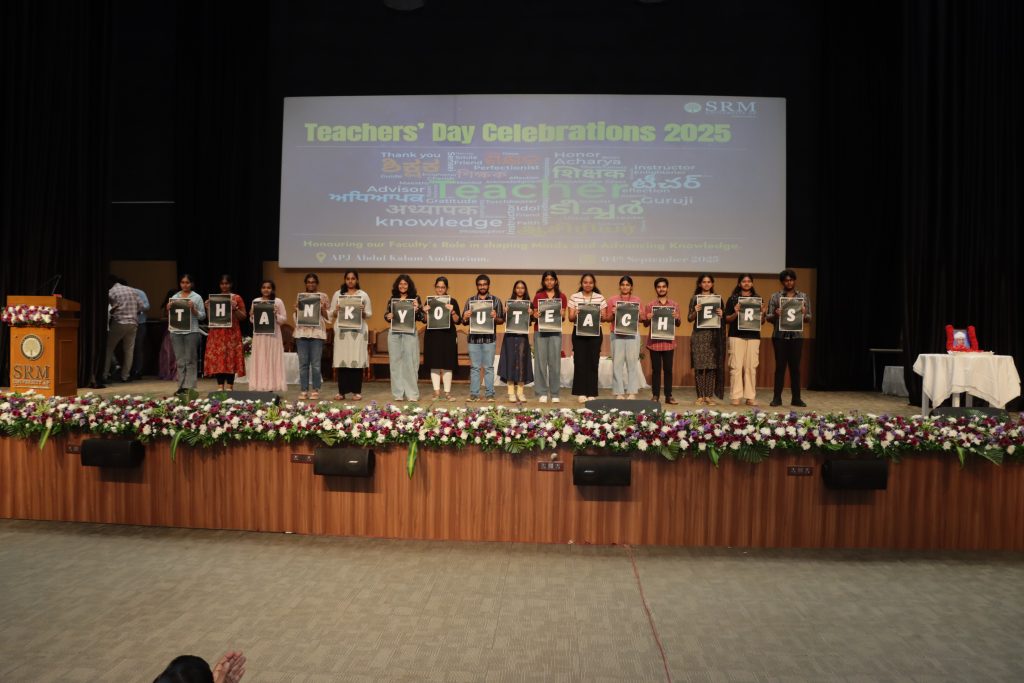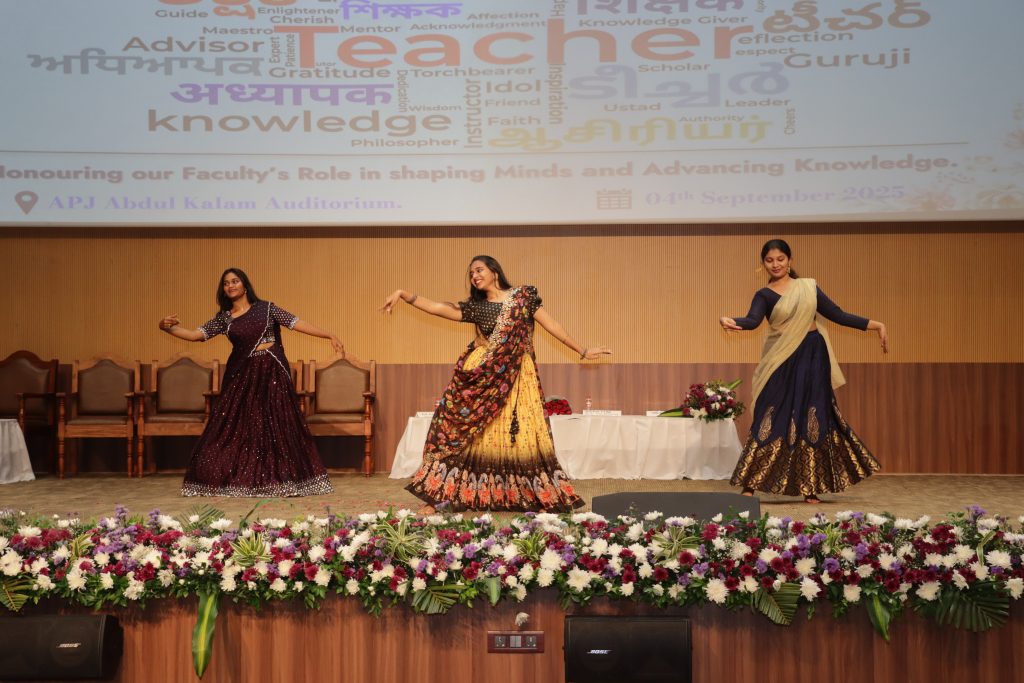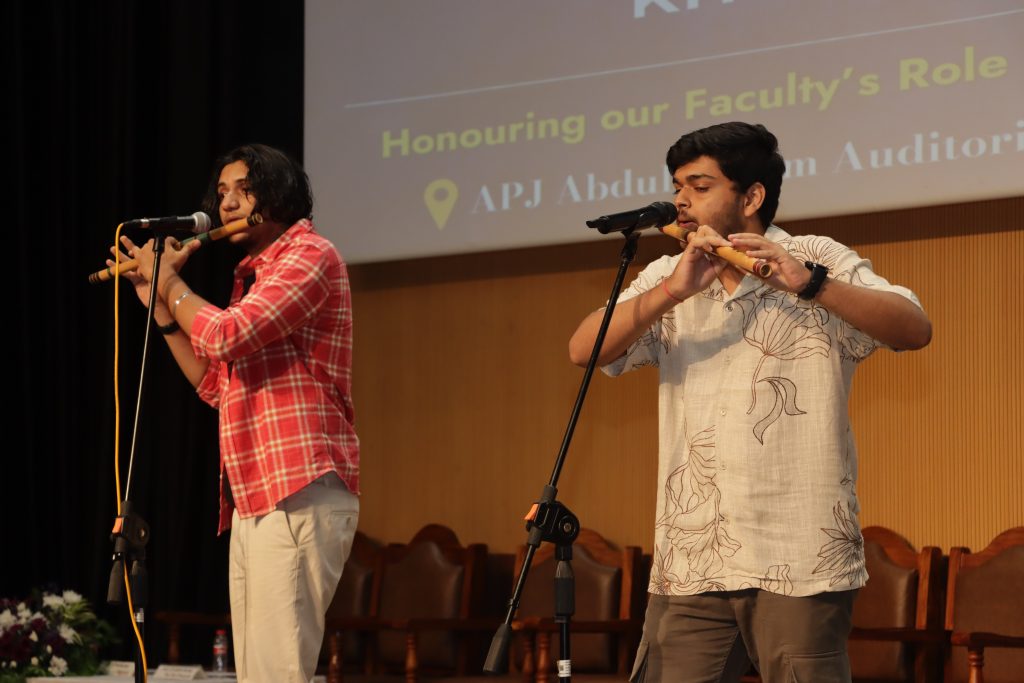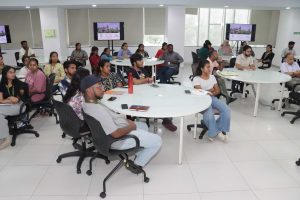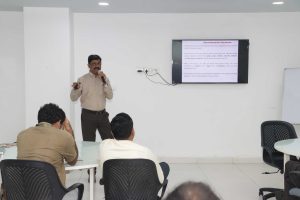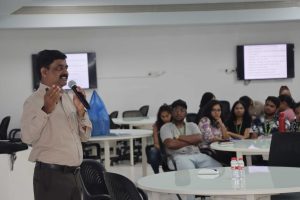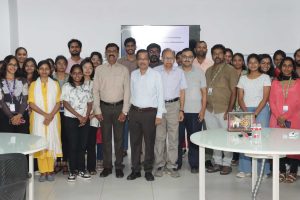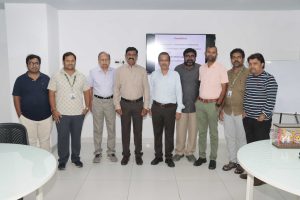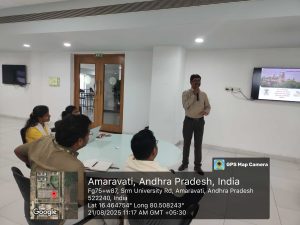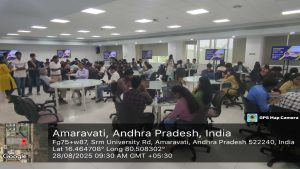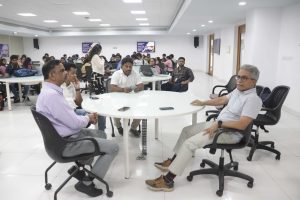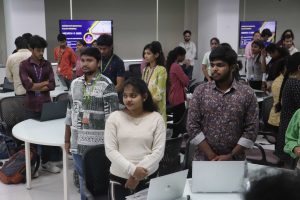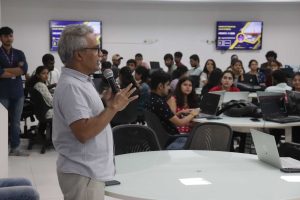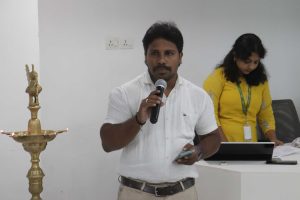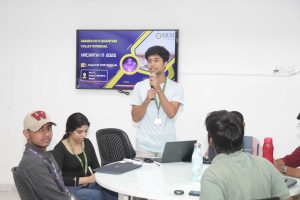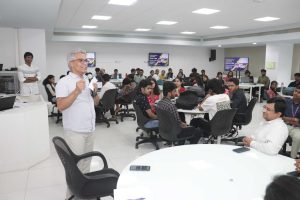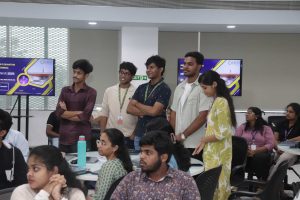SRM-AP All News
ALL News
- Research Scholars Championship September 10, 2025
- Exploring History through Cinema: Screening of Sadgati September 8, 2025
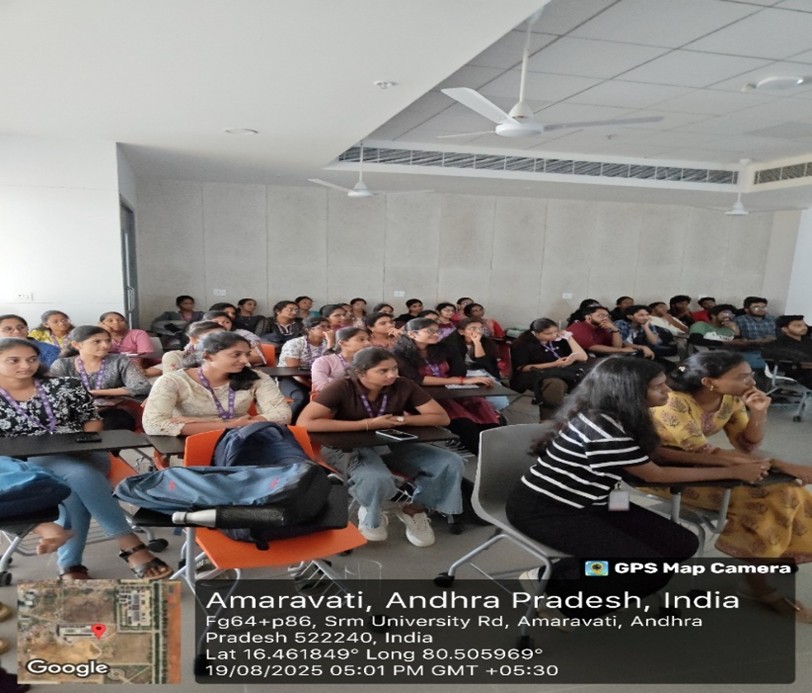
The History and Heritage Club screened the movie Sadgati (1981) on Aug 19, 2025, that gave students a chance to experience one of the significant pages of Indian cultural and social history. Not only is Sadgati an excellent piece of cinema, but it is also a written account of history because of the way the traditions, usages, and hierarchies influenced the lives in the past.
The telefilm is a landmark in Satyajit Ray’s career, as this was his first film which produced in collaboration with the television. In addition to its artistic mastery, the film is also historically relevant since it speaks of the social realities deeply embedded in the society of India, rural India in particular, the social realities of caste and inequality.
The motivating theme of the event was to influence students to regard film as a historical text, like literature and archival records, that expresses and critiques society. Participants learned the historical experiences of injustice to social equality in our current society by becoming immersed in the film.
The screening developed a ripple effect as it made the students think about how history can define society and how art remains a provocation and a life changing factor.
Continue reading → - Teachers’ Day 2025: SRM AP Recognises Ten Faculty with Excellence Awards September 8, 2025
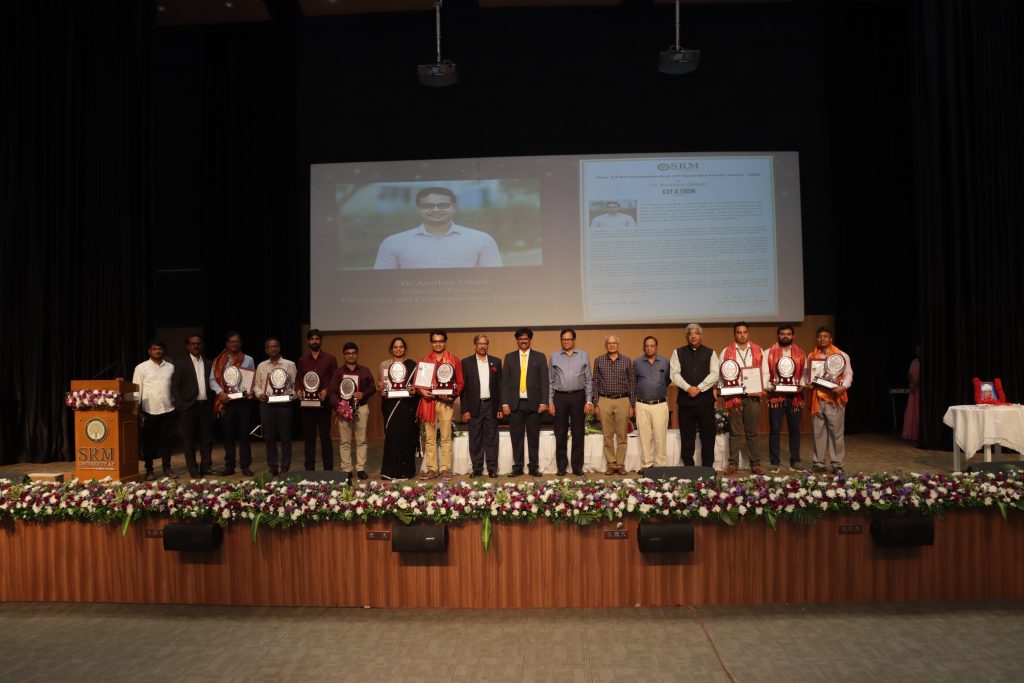
SRM University-AP observed Teachers’ Day 2025 by honouring its faculty members for their contribution to teaching, research, and institutional growth. The celebration was attended by the Chief Guest, Prof. V Chandrasekhar, Visiting Distinguished Professor, Tata Institute of Fundamental Research, Hyderabad, along with SRM Group Research Executive Director, Prof. D Narayana Rao; Advisor-SRM Group, Prof. V S Rao; Pro Vice Chancellor, Prof. Ch Satish Kumar; Registrar, Dr R Premkumar; Deans; Directors; Faculty, Staff and Students of the varsity.
Pro Vice-Chancellor in his welcome address remarked on how teachers hold the ability to transform students. Addressing the popular misconception of how AI can replace teachers, Prof. Satish remarked, “AI may advance to great extent, but it can never replace the profound impact of teachers. Just as a restaurant meal can never match a mother’s cooking, so too can AI never replicate the love and transformation that educators bring to their students’ lives.” He also added that, in his opinion, the most respected strata of teachers are the primary and secondary school teachers, as they lay the foundation of knowledge and discipline in students. He mentioned that the university teachers fine-tune the students’ future.
Chief Guest Prof. V Chandrasekhar underscored the transformative power of education and the lasting legacy that educators can impart to their students by sharing the inspiring story of Acharya Prafulla Chandra Ray, a notable scientist, educator, and nationalist, who pursued a career in chemistry only due to the profound impact of a dedicated teacher.
As part of the ceremony, University Outstanding Faculty Awards 2025 were presented to Prof. Ramesh Vaddi, Dr G V P Bhagath Singh, Dr Pradyut Kumar Sanki, Dr K A Sunitha, Dr Tousif Khan N, Dr Javid Ahmad Dar, Dr Lalitha Mohan Mohapatra, Dr Vineeth Thomas, Dr Jatis Kumar Dash, and Dr Saleti Sumalatha, recognising their academic contributions and commitment to excellence. Dr Anirban Ghosh, Associate Professor was awarded the Prof. V S Rao Foundation – Prof. H P Tiwari Best Faculty Award 2025 for his outstanding achievements in teaching and research. All the awardees were presented with mementos, certificates and a cash prize of 50k.
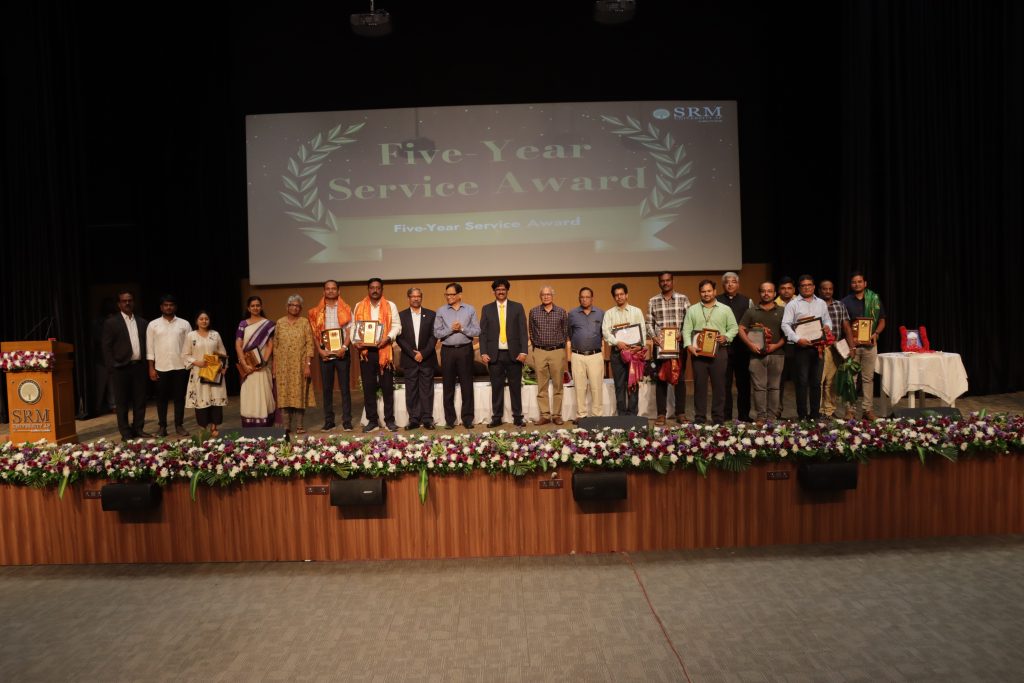
The event also featured the presentation of 22 Five-Year Service Awards to long-serving faculty members. Additionally, 10 faculty members were awarded the Popular Faculty Award. These awards underscored the institution’s commitment to celebrating and encouraging academic excellence.
In his message, Prof. D Narayana Rao, SRM Group Research Executive Director, highlighted the significant transformation in the global perception of India. Prof. Rao underscored that this progress ultimately boils down to the making of world-class scientists, innovators, and leaders, and the teachers play a crucial role in this aspect. Their influence is pivotal in fostering an environment where curiosity thrives and future breakthroughs are born.
The Teachers’ Day celebration reaffirmed the university’s belief that teachers are central to nurturing future generations and advancing knowledge for the betterment of society. At SRM University-AP, this commitment aligns with the institution’s vision of fostering innovation, driving cutting-edge research, and preparing globally competent graduates who contribute meaningfully to nation-building and societal progress.
Continue reading → - National Educators’s Summits 2025 September 1, 2025
The Pink City witnessed an engaging exchange of ideas as SRM University-AP successfully hosted the National Educators Summit 2025 at Hotel Fern Ecotel, Tonk Road, Jaipur. The summit brought together leading school counsellors, coordinators, HODs, and principals from some of the most reputed schools to deliberate on the theme, “Liberal Arts and 21st Century Learning.”
The event was graced by Mr. Ashok Vaid, Principal of Maheshwari Public School and Chairman of Sahodaya Group of Institutions, as the Chief Guest. Prominent educators from institutions including JGPS, MPS, Dharav, Ryan International, SJ Public School, and Vivek Techno School actively participated in the discussions, underscoring the growing relevance of liberal arts in shaping holistic education.
SRM University-AP was represented by Prof. Vishnupad, Dean of the Easwari School of Liberal Arts, and Dr. Nishant K.S., Assistant Professor of Anthropology. Prof. Vishnupad shared insights on “Liberal Arts is not a Back-up Plan: Why the World Needs Humanities More Than Ever”, while Dr. Nishant led a thought-provoking session on “Defining and Understanding the Social Embeddedness of Technology.”
The summit witnessed dynamic panel discussions and brainstorming sessions where educators collectively emphasized that liberal arts education is not just relevant but essential in today’s fast-evolving academic and professional landscape. The deliberations highlighted how critical thinking, creativity, and interdisciplinary learning- the hallmarks of liberal arts- are key to preparing students for the challenges of the 21st century.
Speaking about the initiative, the organizers from SRM-AP reiterated the University’s commitment to extending its learning and vision to a wider student community across India. “This summit is a step toward reimagining education that nurtures both intellect and empathy. We look forward to hosting more such impactful engagements in the future,” they said.The evening concluded with a felicitation ceremony followed by a networking dinner, leaving participants inspired to integrate liberal arts perspectives into mainstream education.
Continue reading → - Dr Aswani on Blockchain-Based Self-Sovereign Identity Management August 31, 2025
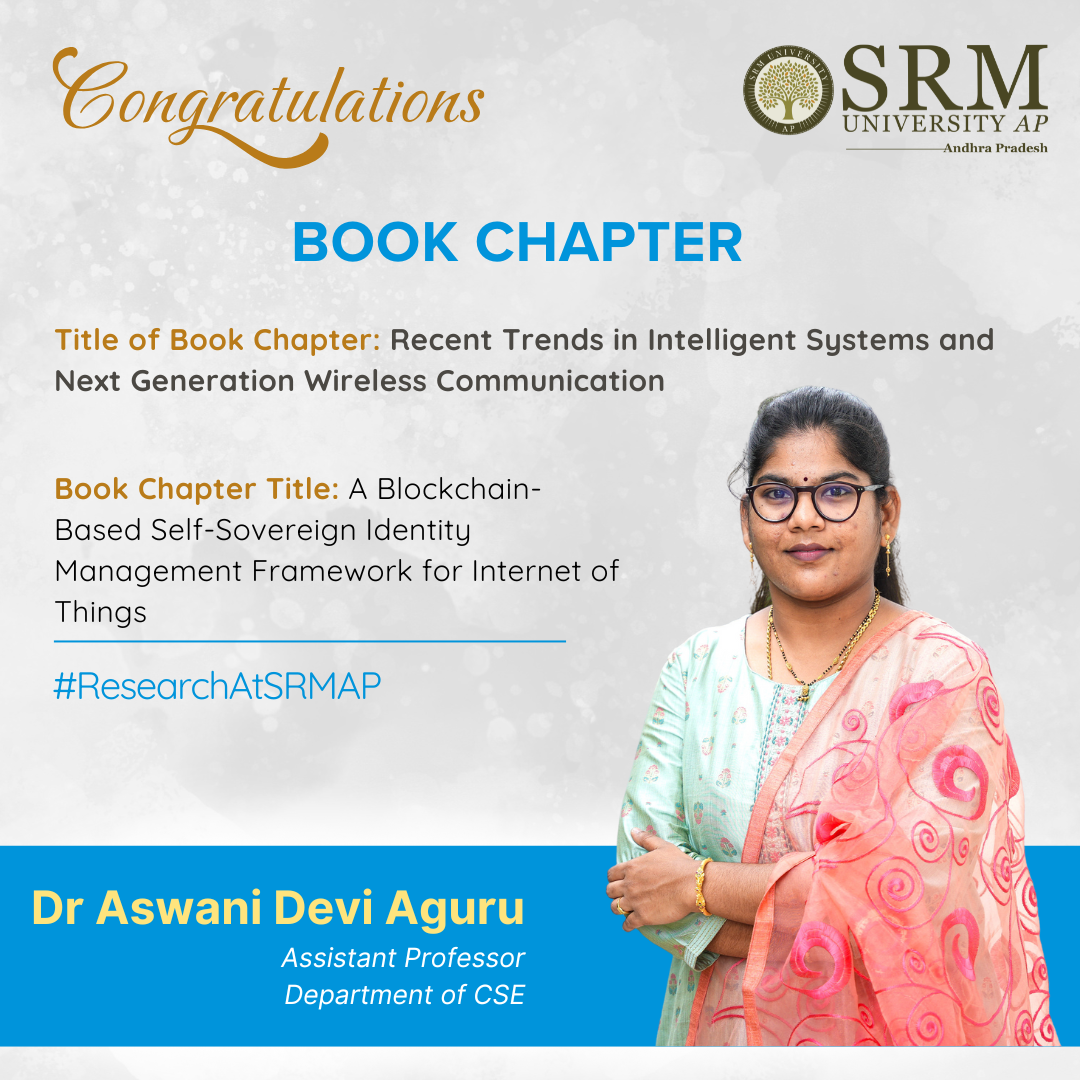 The book chapter “A Novel Blockchain-Based Self-Sovereign Identity Management System for IoT Devices” is a transformative exploration within the book “Decentralized Identity Systems: Innovations and Challenges.” Authored by Dr Aswani Devi Aguru, Assistant Professor, Department of CSEand co-authored by Dr Suresh Babu Erukala NIT Warangal, this chapter delves into the critical intersection of blockchain technology and identity management, specifically tailored for the rapidly evolving Internet of Things (IoT) landscape.
The book chapter “A Novel Blockchain-Based Self-Sovereign Identity Management System for IoT Devices” is a transformative exploration within the book “Decentralized Identity Systems: Innovations and Challenges.” Authored by Dr Aswani Devi Aguru, Assistant Professor, Department of CSEand co-authored by Dr Suresh Babu Erukala NIT Warangal, this chapter delves into the critical intersection of blockchain technology and identity management, specifically tailored for the rapidly evolving Internet of Things (IoT) landscape.Brief Introduction of the Book Chapter.
This book chapter presents a novel blockchain-based self-sovereign identity (SSI) management system that promotes global interoperability by generating decentralized, secure, and unique identifiers for edge devices worldwide. The proposed system leverages the power of permissioned Blockchain, specifically Hyperledger Indy, a distributed ledger technology (DLT) designed for creating and managing decentralized identities. The EdDSA-based key management and Plenum Byzantine Fault Tolerant (BFT)-based consensus algorithm introduce novelty and effectiveness in the proposed framework compared to state-of-the-art works on identity management. The performance of Hyperledger Indy Blockchain is tested on Hyperledger Caliper in terms of run time of operations and transaction throughput. We proclaim that our work is one of the earliest studies on Blockchain-based SSI management on Hyperledger Indy.
Significance of the Book Chapter
The author expresses strong enthusiasm for designing novel frameworks for IoT device authentication utilising ECC and AEAD primitives, in addition to developing identity management solutions based on SSI. The alignment of the book’s topics with current research highlights their significance in the progression of these critical areas.
Target Audience:
Very limited research has been carried out on SSI for IoT devices. Researchers will find the book chapter helpful in beginning their research on Blockchain-based decentralised identity management of IoT devices.
Co-authors or other Major Contributors
Dr Suresh Babu Erukala is a co-author. He is working as an Associate Professor in the Department of CSE at NIT Warangal.
- A Secure Framework for Embedding Secret Messages within Cover Images August 31, 2025
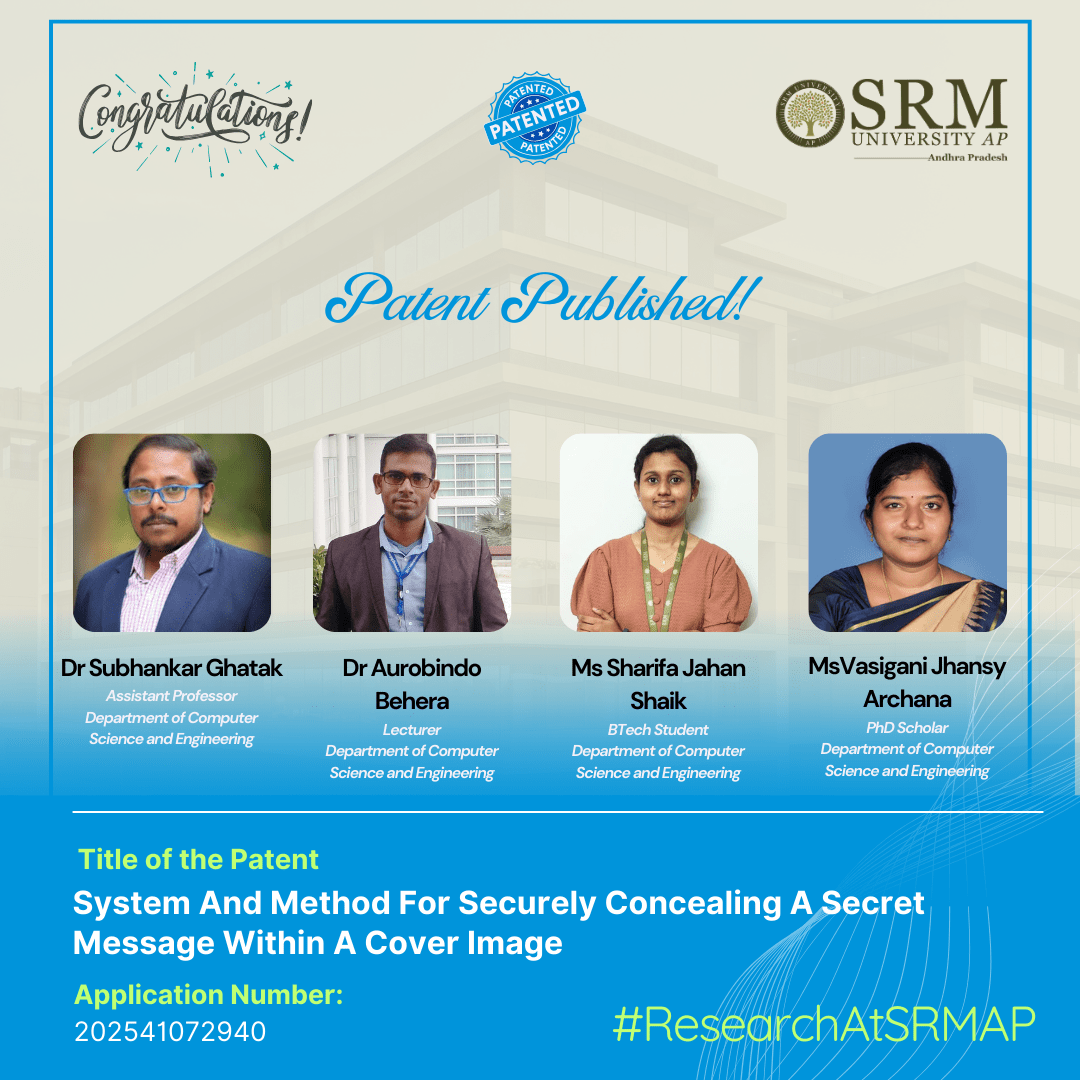 The Department of Computer Science and Engineering has filed and published a patent application titled “System and Method for Securely Concealing a Secret Message within a Cover Image” (Application No. 202541072940) in the Patent Office Journal. The invention is credited to Dr Subhankar Ghatak, Assistant Professor, Department of CSE, Dr Aurobindo Behera, Lecturer, Department of CSE (SRM Education), Ms Sharifa Jahan Shaik, U G Student, Department of CSE, and Ms Vasigani Jhansy Archana, Ph.D. Student, Department of CSE.
The Department of Computer Science and Engineering has filed and published a patent application titled “System and Method for Securely Concealing a Secret Message within a Cover Image” (Application No. 202541072940) in the Patent Office Journal. The invention is credited to Dr Subhankar Ghatak, Assistant Professor, Department of CSE, Dr Aurobindo Behera, Lecturer, Department of CSE (SRM Education), Ms Sharifa Jahan Shaik, U G Student, Department of CSE, and Ms Vasigani Jhansy Archana, Ph.D. Student, Department of CSE.This innovation introduces a new paradigm in data hiding, advancing beyond conventional steganography techniques. Unlike traditional methods that subtly alter a cover image to embed secret information, this approach leaves the image entirely untouched.
By leveraging Pseudo-Random Number Generation (PRNG) in combination with the cover image and securely storing the PRNG seed value on the Blockchain, the system achieves unparalleled data security and integrity. As a result, the cover image remains completely unmodified, ensuring minimal distortion and highly reliable message retrieval.
Abstract :
This invention presents a novel approach to data hiding that differs from conventional steganography techniques. Unlike traditional methods, which modify the cover image to embed secret data, this methodology ensures the cover image remains completely unaltered. The technique employs Pseudo-Random Number Generation (PRNG) in conjunction with an array and the cover image to conceal secret data. The PRNG seed value is securely stored on the Blockchain, thereby enhancing both uniqueness and security. Since the cover image undergoes no modification, the proposed approach achieves a minimal Mean Squared Error (MSE) for the extracted secret image.To hide a message in a picture, the usual way is to change the picture slightly—for example, by altering a few pixels so the difference is hard to notice. But if someone examines the image very closely, they might detect something unusual. Our method works differently. It’s like hiding a treasure without ever touching the map. Instead of altering it, we use a secret formula and a random number generator to decide where the hidden information would be if we needed to retrieve it later. The key to that formula is securely stored on the Blockchain, like locking it inside an unbreakable safe. As a result, the picture stays 100% original with no changes, and only the person who has the Blockchain secret key can uncover the hidden message.
Practical implementations :
Military Communication: Steganography can securely encode sensitive data, like that of meeting locations (latitude and longitude), ensuring that critical information remains hidden from adversaries.
Password Protection: Individuals can embed passwords within images, offering an additional layer of security and reducing the risk the unauthorized access.
Covert Communication: Activists or journalists in repressive regimes can use steganography to communicate securely by hiding messages within innocuous-looking images or files.
Medical Image Security: In healthcare, patient data can be securely embedded within medical images, ensuring data confidentiality while sharing the images with specialists.Future research plans:
AI-Assisted Stealth Optimisation: Use Machine Learning to predict detection patterns and further improve the undetectability of hidden data.
Cross-Platform Media Support: Extend beyond images to videos, audio streams, and 3D models, ensuring zero modification across formats.
Continue reading →
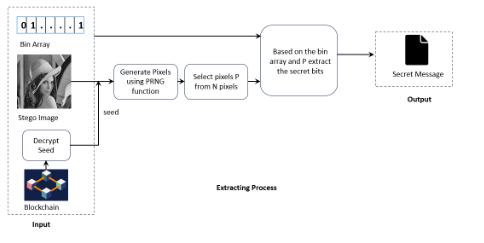
- Dr Barman on Hunting for heavy Z ′ August 31, 2025
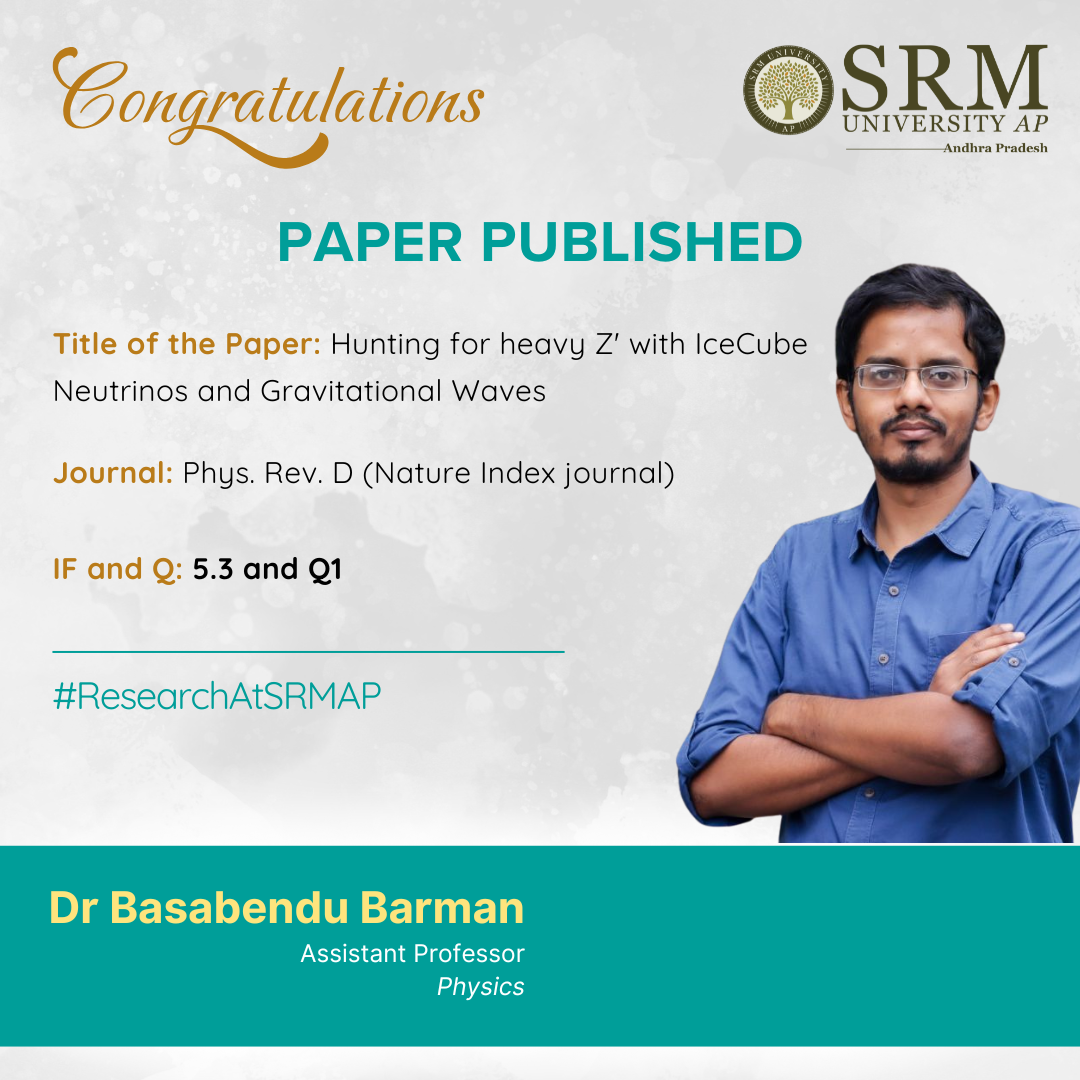 This research article, “Hunting for heavy Z ′ with IceCube neutrinos and gravitational waves,” by Assistant Professor Dr Basabendu Barma, explores the links between dark matter, the imbalance of matter and antimatter in the universe, and how these phenomena might be detected through various methods.
This research article, “Hunting for heavy Z ′ with IceCube neutrinos and gravitational waves,” by Assistant Professor Dr Basabendu Barma, explores the links between dark matter, the imbalance of matter and antimatter in the universe, and how these phenomena might be detected through various methods.Abstract:
In the minimal gauged B−L extension of the Standard Model, we demonstrate that PeV-scale dark matter (DM) and the baryon asymmetry of the Universe (BAU) can be simultaneously explained through the three right-handed neutrinos (RHNs) present in the theory. The DM candidate undergoes rare decay into light neutrinos, providing an explanation for the observed IceCube events, while the other two RHNs generate the BAU via leptogenesis. The breaking of gauge symmetry gives rise to detectable gravitational waves (GWs) from decaying cosmic strings (CS), making this framework testable at several future GW detectors—despite being beyond the reach of conventional collider experiments due to the extremely weak gauge coupling. The symmetry-breaking scale establishes a connection between particle masses, couplings, and the GW spectrum, offering a unified and predictive scenario.
From the Layman’s Perspective:
We know there are four fundamental forces in nature: strong, weak, electromagnetic, and gravitational. But what if there’s a hidden, fifth force we haven’t discovered yet? The Standard Model of particle physics, which organizes all known particles, doesn’t include this fifth force (and doesn’t include gravity either, unfortunately). So, how can we theoretically create a particle physics model for this possible fifth force? That’s what we explore in this paper.Interestingly, there are already experiments (for example, the Large Hadron Collider or LHC at CERN, Geneva) searching for signs of fifth forces. If this force exists, our model could be tested by these experiments. But there’s more! We also wanted to tackle a big mystery in cosmology: dark matter. Dark matter makes up about 24% of the universe, but we’ve never directly detected it because it doesn’t reflect light—it’s “dark.” However, there are smart ways to try to find it. In this paper, we propose how the same dark matter might interact with the visible universe through this fifth force and thereby leave their footrpints at IceCube experiment that looks for high energy neutrinos or at experiments that search for “spcaetime ripples” called the gravitational waves.
Practical Implementation & Social Impact:
This work primarily contributes to the realm of pure intellectual pursuit. Science speaks the language of data, and data is born from experiments. The validation of any well-constructed theory ultimately depends on experimental evidence. For this reason, it is essential for society to cultivate a culture that values fundamental scientific discussion and increases funding for basic research.
Collaborations:
This work has been done in collaboration with Arindam Das (Hokkaido U.), Suruj Jyoti Das (IBS, Daejeon, CTPU), Marco Merchand (Royal Inst. Tech., Stockholm and Stockholm U., OKC).
Future Plans:
A closer look into early universe dynamics by performing more involved simulations.
Connection between particle physics models and early Universe cosmology. Complementary searches from different experiments in unraveling new physics beyond the Standard Model. Searching new physics at energy and intensity frontier
Continue reading → - Dr Lakshmana Rao and Team on Financial Access and Sustainable Development August 31, 2025
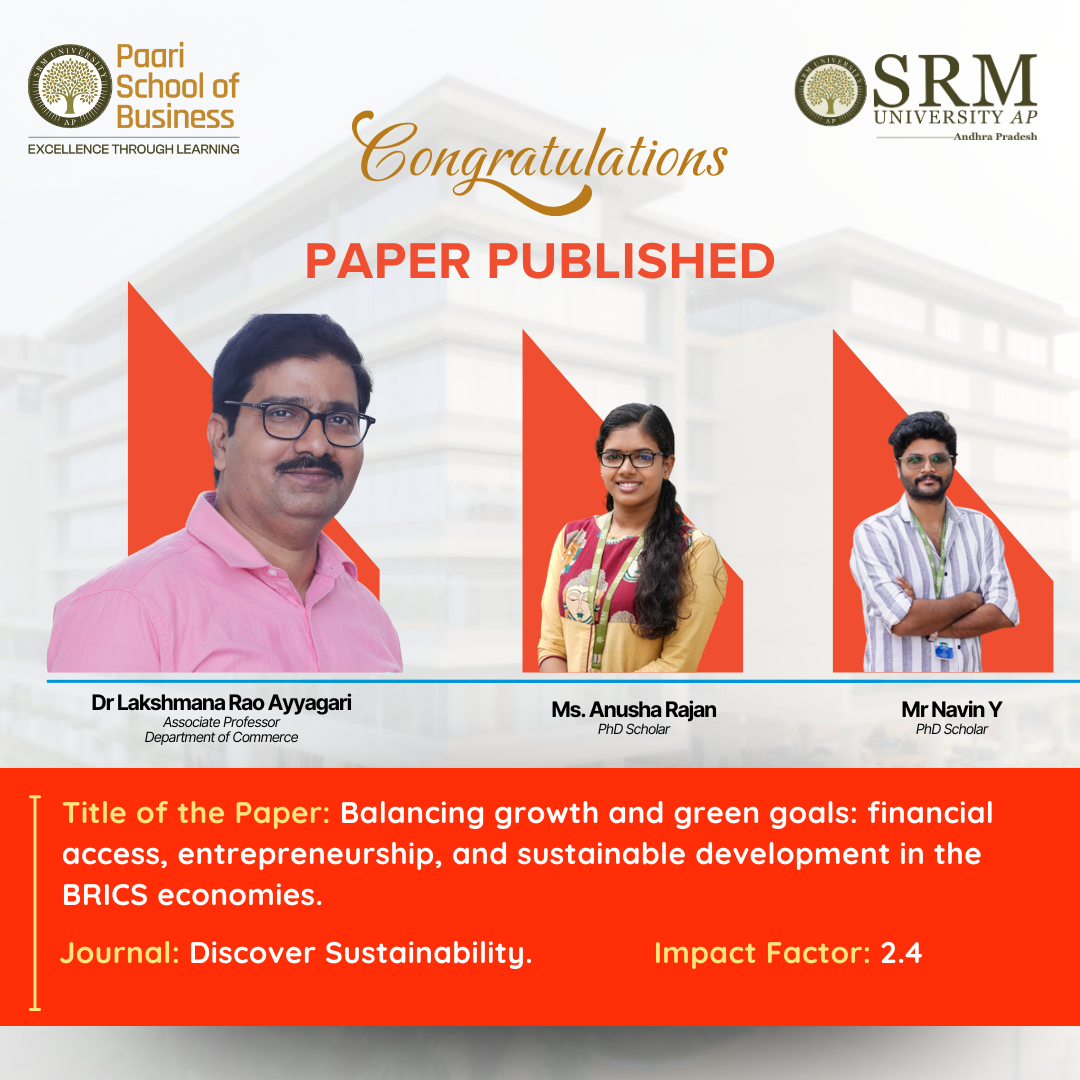 Financial access acts as both a catalyst and a challenge in today’s rapidly evolving economies. The research article “Balancing Growth and Green Goals: Financial Access, Entrepreneurship, and Sustainable Development in the BRICS Economies” by Associate Professor Dr Lakshmana Rao Ayyagari and his research scholars investigates this delicate balance between economic ambition and environmental responsibility. By applying robust PLS-SEM analysis over the period 2000-2023, the study conducted by the team at SRM AP uncovers the paradox of finance: it fuels entrepreneurship and development, while simultaneously straining sustainability goals.
Financial access acts as both a catalyst and a challenge in today’s rapidly evolving economies. The research article “Balancing Growth and Green Goals: Financial Access, Entrepreneurship, and Sustainable Development in the BRICS Economies” by Associate Professor Dr Lakshmana Rao Ayyagari and his research scholars investigates this delicate balance between economic ambition and environmental responsibility. By applying robust PLS-SEM analysis over the period 2000-2023, the study conducted by the team at SRM AP uncovers the paradox of finance: it fuels entrepreneurship and development, while simultaneously straining sustainability goals.The findings present a timely call for reimagining financial frameworks that not only strengthen economic systems but also safeguard ecological balance. The research offers actionable insights for policymakers, financial institutions, and communities- pointing towards a future where financial access empowers entrepreneurs without compromising green development.
Abstract
Financial access is a cornerstone of entrepreneurship and a key enabler of economic development. This study examines the dual role of financial systems in promoting entrepreneurial growth and sustainable development across BRICS nations (2000–2023). Using robust PLS-SEM analysis, the research reveals that while financial access drives business formation and economic resilience, it also poses ecological challenges through resource overuse and pollution. The findings highlight a paradox: the same financial mechanisms that foster progress can strain environmental sustainability. The study proposes actionable strategies to align finance with green development goals.
Explanation in Layperson’s Terms
Imagine giving people better access to banks and loans- it helps them start businesses and grow the economy. But, if those businesses use too many natural resources or pollute the environment, growth becomes harmful. This research looks at how countries like Brazil, Russia, India, China, and South Africa (BRICS) can support entrepreneurs without hurting the planet. The goal is to help governments, banks, and businesses grow responsibly by making sure financial tools support both money-making and environmental care.
Practical Implementation of the Research
- Policy Impact: Informs BRICS governments to introduce green credit quotas, eco-tax incentives, and sustainability assessments in funding policies.
- Financial Sector Reform: Encourages banks to incorporate environmental risks into lending practices.
- Community Empowerment: Highlights the importance of inclusive entrepreneurship programs, especially for rural and marginalized communities.
- Sustainability Education: Provides a foundation for integrating sustainability into entrepreneurship curricula and public discourse.
Future Research Plans
- Explore the role of blockchain and AI in promoting transparent, sustainable financial systems.
- Investigate gender and social equity in sustainable entrepreneurship ecosystems.
- Conduct comparative studies on green finance policy innovations beyond BRICS (e.g., ASEAN or African Union).
- Develop longitudinal, mixed-methods frameworks to assess cultural, institutional, and digital factors in sustainability transitions.
- Expert Talk on Marine-Based Bioactive Compounds August 31, 2025
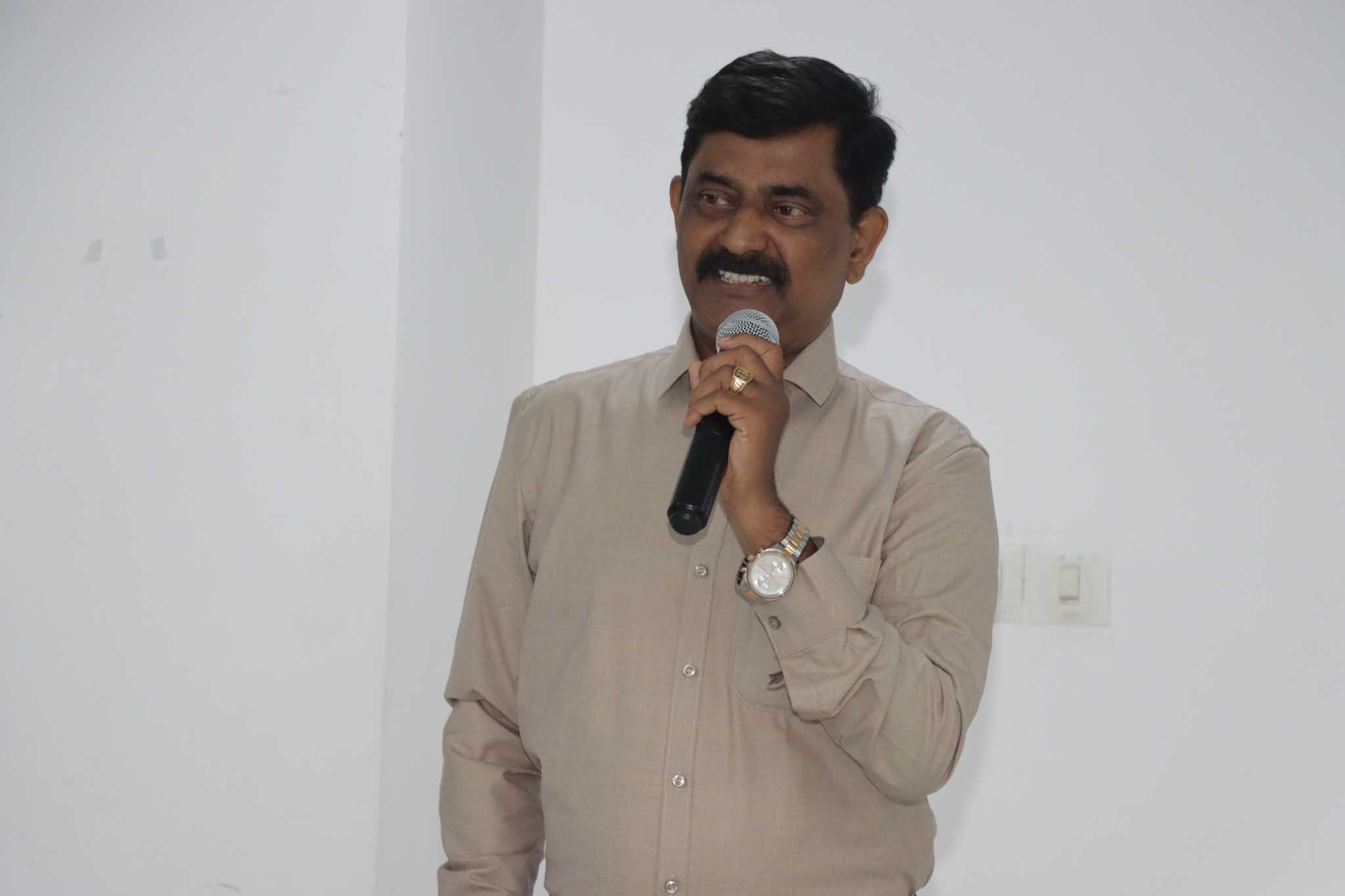
The Department of Biological Sciences, School of Engineering and Sciences (SEAS) organised an Expert Talk on the theme “Exploring Marine-Based Bioactive Compounds for Biomedical Applications”. The distinguished lecture was delivered by Prof. Dr C Arulvasu, Professor and Head, Department of Zoology, University of Madras. The session was hosted by Prof. Jayaseelan Murugaiyan.
In his address, Prof. Dr Arulvasu provided valuable insights into the biomedical potential of marine-derived bioactive compounds, underscoring their emerging significance in combating critical health challenges such as cancer, microbial infections, inflammation, and tissue damage. He explained that bioactive substances from marine organisms remain largely underexplored for therapeutic applications, yet hold immense promise for future biomedical innovations.
Drawing on his three decades of research experience, Prof. Dr Arulvasu shared highlights of his pioneering work on toxins derived from various marine organisms, showcasing their potential applications in biomedical science. He emphasised the importance of adopting a multidisciplinary approach, integrating biology, chemistry, nanotechnology, and bioinformatics, to unlock and harness the therapeutic value of marine bioresources effectively.
The interactive session fostered meaningful engagement, where participants gained a deeper understanding of how marine bioactives represent the next frontier in biomedicine.
Concluding the lecture, Prof. Dr Arulvasu invited students and researchers of the University to collaborate with him in advancing this promising field of study, emphasising the transformative role that marine bioactives can play in shaping future biomedical research and applications.
Continue reading → - Internal Hackathon for AQVH-2025 August 31, 2025
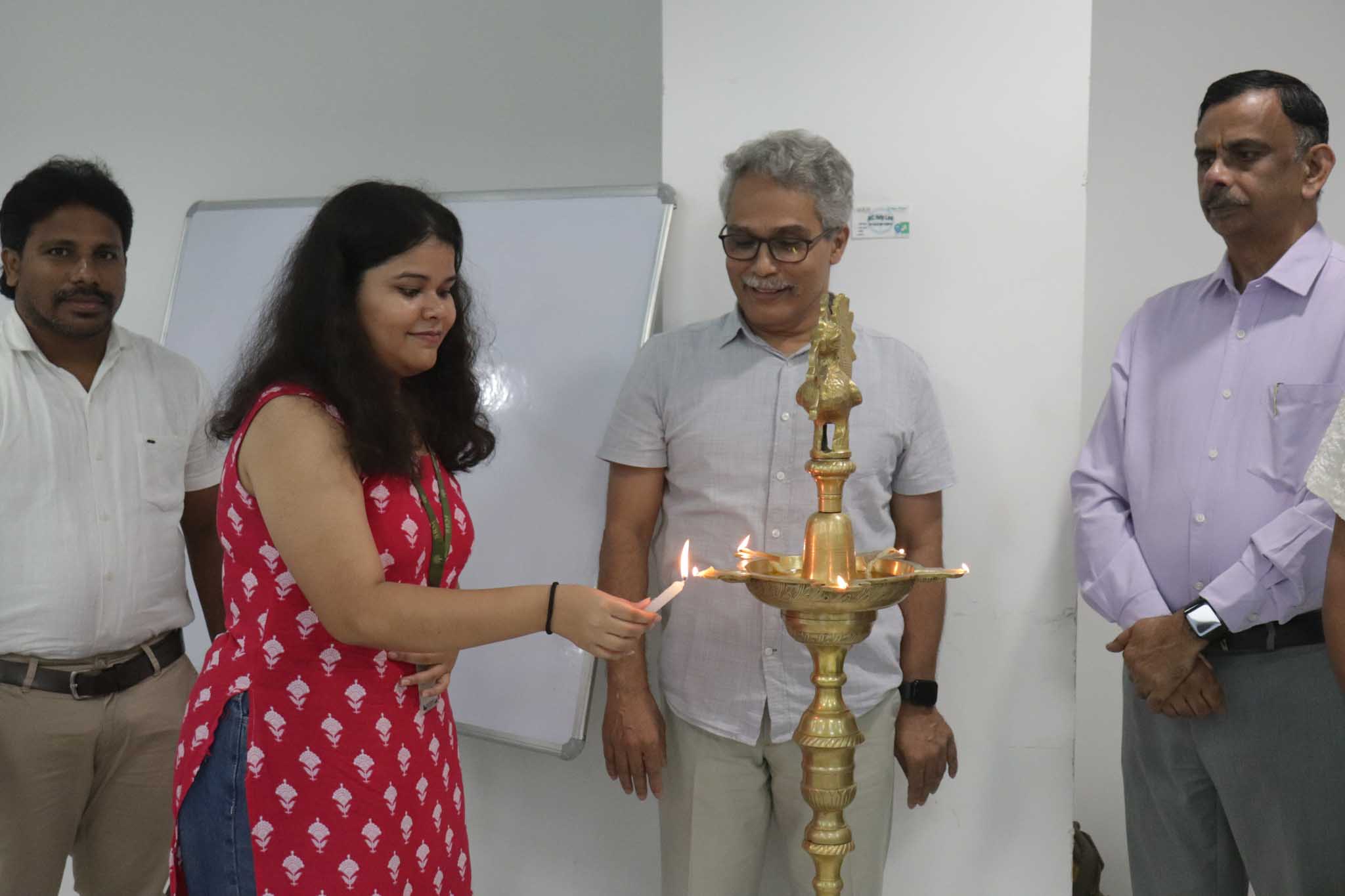
The Internal Hackathon 2025 was successfully conducted at SRM University-AP, Amaravati, serving as a platform to identify and select two exceptional teams for the upcoming Amaravati Quantum Valley Hackathon 2025. The event brought together some of the brightest young innovators, who showcased their talent, creativity, and problem-solving skills. With 22 teams, each consisting of seven members, the competition was intense, inspiring participants to brainstorm, build, and push the boundaries of innovation.
At the end of this thrilling challenge, Team APX Nova and Team Navacharak emerged as the top two winners, securing their place in the prestigious Amaravati Quantum Valley Hackathon 2025. Their projects stood out for their originality, feasibility, and potential impact, reflecting the growing culture of research, innovation, and entrepreneurship at SRM University-AP.
The event was graced by Prof. C V Tomy, Dean-SEAS, as the Chief Guest, and Dr Jatindra Kumar Dash, Associate Dean-SEAS (Academic Operations and Graduate Outcomes), as the Guest of Honour. Dr M Mahesh Kumar served as the Co-convenor, while Mr Pankaj Belwariar, Director Communications, along with other distinguished dignitaries, added immense value to this inspiring occasion.
Speaking at the event, Prof. C V Tomy said, “The journey of computing has taken us from CPU to GPU, and now towards QPU- the Quantum Processing Unit. Quantum computers are not just faster machines; they represent a paradigm shift, enabling us to solve problems that were once unimaginable. Platforms like this hackathon prepare our students to embrace and contribute to this technological revolution.”
The Internal Hackathon was not just a competition- it was a celebration of innovation, teamwork, and the limitless potential of SRM University-AP students. Events like this inspire young minds to think beyond conventional boundaries, encourage collaboration across disciplines, and nurture future leaders who will drive advancements in science, technology, and society.
Continue reading →


